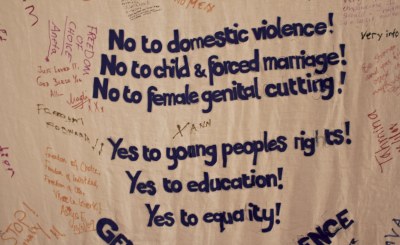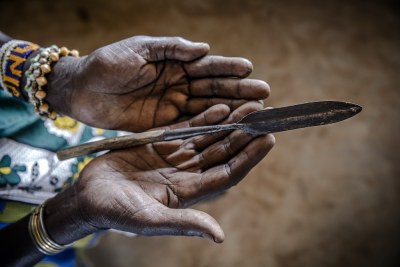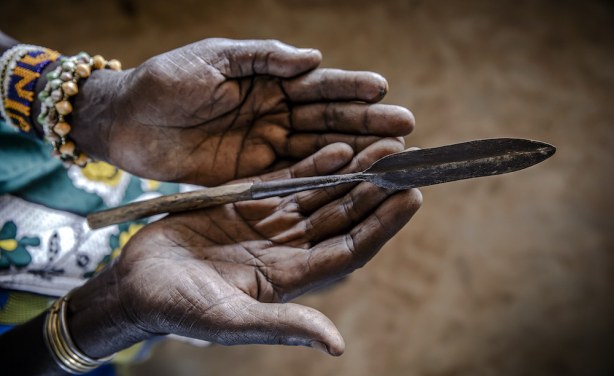-
Nigeria: Nigeria Must Eliminate Female Genital Mutilation to Achieve Other Goals - Official
Premium Times, 28 April 2022
Over 200 million girls and women have been subjected to the harmful practice of FGM in 30 countries including Nigeria. Read more »
-
Nigeria: Nigeria Accounts for 115 Million Cases of Genital Mutilation Globally, Says Govt
This Day, 29 April 2022
The Minister of Women Affairs, Mrs. Pauline Tallen yesterday said Nigeria has the highest number of cases of Female Genital Mutilation (FGM) in the world, accounting for about 115… Read more »
-
Nigeria: Perpetrators of Genital Mutilation in Ebonyi to Face Severe Sanction
Leadership, 28 April 2022
Traditional rulers, health workers and youth leaders in Ebonyi local government area of Ebonyi State, have said that they would continue to go after those who still engage in the… Read more »
-
Nigeria: Stakeholders Tasked to Eradicate Female Genital Mutilation in Osun
This Day, 22 April 2022
In an effort to eradicate female genital mutilation(FGM), civil societies organisations (CSOs), non-governmental organisations, government workers, and media practitioners in Osun… Read more »
-
Nigeria: Nigeria, World's Third Highest In Female Genital Mutilation - UNICEF
Vanguard, 7 February 2022
The United Nations Children's Fund, UNICEF, says with an estimated 19.9 million survivors, Nigeria accounts for the third highest number of women and girls who have undergone… Read more »
'Nigeria Must Eliminate FGM to Reach Other Sustainable Goals'
Nigeria's Minister of Women Affairs Pauline Tallen, has said that for the county to achieve a majority of the United Nations Sustainable Development Goals by 2030, it must address issues of Female Genital Mutilation (FGM).
Nigeria has the highest number of cases of FGM in the world, accounting for about 115 million out of 130 million circumcised women, worldwide.
According to Tallen, eliminating FGM is crucial to realising many of the other sustainable development goals, including targets on health and well-being, quality education, gender equality, decent work and economic growth.
FGM is a traditional practice which is deeply rooted in cultural beliefs and perceptions, for generations. It involves the partial or total removal of external female genitalia or other injuries to the female genital organs for non-medical reasons, and is considered a human rights violation. The practice has no health benefits for girls and women.
InFocus
-
A Ugandan team has created a mobile app to link female genital mutilation (FGM) survivors and at-risk girls with services in real time. The multilingual app, Axces mobile, wa Read more »
-
As the International Day of Zero Tolerance for Female Genital Mutilation was marked on 6 February, the UN estimates that Read more »






